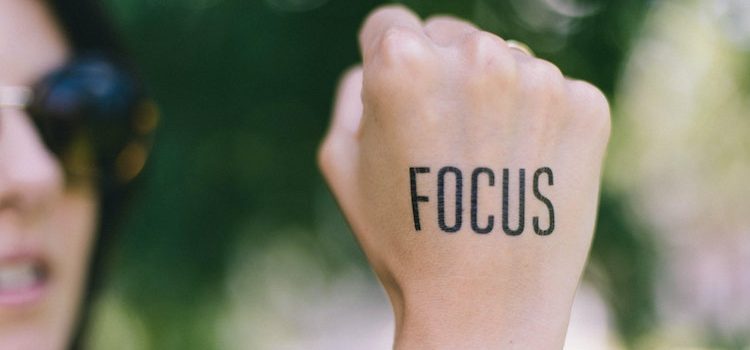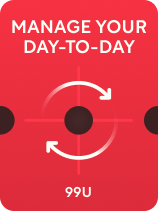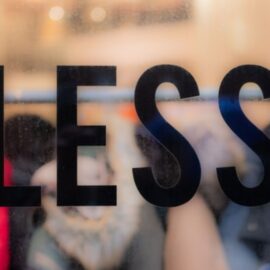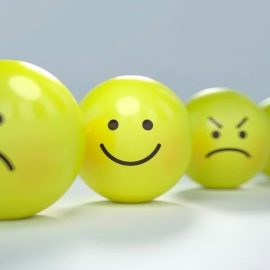

This article is an excerpt from the Shortform book guide to "Manage Your Day-to-Day" by 99U and Jocelyn K. Glei. Shortform has the world's best summaries and analyses of books you should be reading.
Like this article? Sign up for a free trial here.
Do you tend to work in fits and starts? Do you let notifications, emails, and squirrels grab your attention?
Manage Your Day-to-Day is a collection of essays by some of today’s best-known creative minds. They advise that, to improve your focus, you must be intentional, manage distractions, and stop multitasking. While the advice is directed at creative professionals, it applies to anyone intent on boosting their focus.
Continue reading to learn how to improve your focus with tips from several highly-successful people.
How to Improve Your Focus
It’s not enough to establish a routine for your creative work; you also need to focus on your creative projects when you’re working on them. While the reality of constant connectivity can make it difficult to focus, it’s still possible. Maintaining focus and avoiding distractions is a skill you can develop with practice. Once you know how to improve your focus, you’ll be on your way to engaging more deeply in the creative process, increasing your productivity, and more effectively generating new ideas.
(Shortform note: While you can enhance focus with practice, some doctors also suggest adopting a healthier lifestyle to further improve concentration. By combining regular exercise and a nutritious diet, you can optimize your focus and support cognitive well-being. For example, engaging in regular exercise, such as brisk walking, can stimulate brain chemicals that facilitate the formation of new connections, alleviate stress, and promote better sleep. Moreover, studies indicate that following a Mediterranean-style diet, which includes abundant fruits, vegetables, fish, nuts, and olive oil, along with moderate red wine consumption, is associated with reduced cognitive decline.)
Step 1: Be Intentional
Often the decisions you make that cause you to lose focus—to check email, answer a text message, or grab yet another cup of coffee—are unconscious choices. According to behavioral economist Dan Ariely (Predictably Irrational), most of the choices we make are unconsciously determined by what he refers to as choice architecture, the arrangement of options that influence our decision-making.
Ariely explains that, by organizing your environment to minimize distractions and setting defaults that encourage focus, you can create environments that help you concentrate better and avoid choices that hinder your ability to pay attention. For example, if you often find yourself getting distracted by social media, you can change the choices available by turning off your phone. This change in the choice architecture will reduce the temptation to check your phone and keep your attention focused on your creative work.
In addition to setting up your environment to encourage focus, practice focusing for longer periods of time. Cal Newport suggests identifying a concrete task and then focusing on that task for one hour. If you’re able to sustain focus that whole time, without succumbing to any distractions, then add 15 minutes to your focus time every two weeks. If you get distracted, he suggests stopping and trying again later. This will train your mind that distractions are unacceptable.
Another way to practice focus is through meditation. According to Leo Babauta, author of The Power of Less, being still and focusing on your breath will improve your ability to sustain attention. This practice also cultivates heightened self-awareness, allowing you to recognize distracting thoughts and resist the pull of distractions, enabling you to stay present in the moment.
Step 2: Manage Distractions
For many of us, technology is the number one source of distraction. James Victore, designer, filmmaker, and author of Feck Perfuction, explains that many of us have allowed our devices, with their constant alerts and buzzing, to determine our priorities. He insists that the key to developing a healthy relationship with technology is to remind yourself that you’re in control of how you focus your attention and to make sure you’re using technology in service of your priorities.
Social media and email are often the worst sources of distraction, easily pulling our attention away from more important work. Lori Deschene, founder of Tiny Buddha, says that it’s important to pay attention to when and why you engage with social media. Social media can be helpful as long as you make sure you’re using it intentionally in a way that serves you and your work.
Aaron Dignan, the founder of The Ready and author of Brave New Work, has a similar suggestion for how to manage email. He suggests considering every email through the lens of your long-term goals by following two simple rules:
First, keep your long-term goals in mind. Email often pertains to how we manage the minutiae of our day, but, according to Dignan, most of those smaller tasks connect to larger goals. If you’re clear on your long-term goals, you can mentally organize your email according to how the correspondence impacts those goals. For example, if your long-term goal is to launch a successful startup, you can prioritize emails related to funding, partnerships, and product development over less impactful messages. He suggests writing your goals down somewhere visible and reviewing them every couple of months to make sure they’re still accurate.
Second, give yourself permission to say no. You’ll inevitably get emails that don’t have any connection to your goals or priorities. Don’t let distracting opportunities pull you away from what’s most important. You can’t do everything, so don’t try. If you get an opportunity or request that will distract you from your goals, say no, and move on.
Step 3: Stop Multitasking
One of the ways we lose our focus is by trying to do too many things at once. Christian Jarrett, a psychologist and the editor of Psyche magazine, argues that if you want to improve your focus, you should stop trying to multitask. He explains that the ability to multitask is a myth. People who claim to multitask are in fact task-switching, shifting attention quickly from one task to another, which gives neither task full focus. Task-switching over the course of a day or several hours can also negatively impact your focus because it requires constant mental readjustment and can lead to decreased productivity and increased cognitive fatigue.
(Shortform note: In Eat That Frog, business consultant Brian Tracy goes into greater detail on the impact of task-switching. He explains that when you switch from one task to another, it takes an average of 17 minutes to refocus on your original task, potentially increasing the time it takes to complete that task by up to 500%. Moreover, the more interruptions you experience and the more often you switch tasks, the more mistakes you’re likely to make.)
Jarrett explains that starting a new task before the first is finished can leave what scientists call “attentional residue” where your brain is still at least partially occupied by the unfinished task. He suggests that if you have to leave a concrete task unfinished, try to pause at a logical stopping point that leaves at least one portion of the task complete.
(Shortform note: While Jarrett’s suggestion seems intuitive, a psychological phenomenon known as the Zeigarnik Effect suggests that people remember unfinished or interrupted tasks better than completed ones. Therefore, some psychologists suggest that stopping a task in the middle of a flow, in a “bad stopping place,” can increase your motivation and ability to get started again the next day. They even suggest getting started on the next task for a minute or two before stopping, as the unconscious brain will continue to work on it until you return.)

———End of Preview———
Like what you just read? Read the rest of the world's best book summary and analysis of 99U and Jocelyn K. Glei's "Manage Your Day-to-Day" at Shortform.
Here's what you'll find in our full Manage Your Day-to-Day summary:
- That creativity is the result of disciplined work habits, not innate genius
- Tips from experts on how to boost your creativity, focus, and productivity
- Why you should never strive for creative perfection






